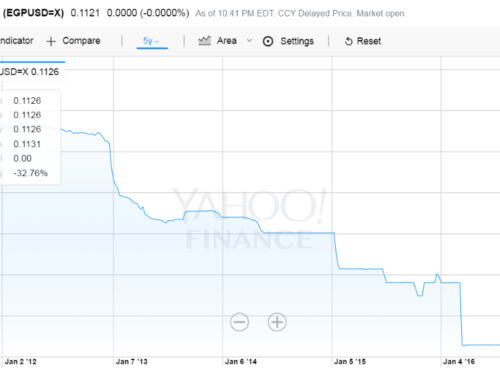Update: Someone translated this article into French for Slate Afrique: La Tunisie, nouveau modele Arabe?
Summary: Tunisia is beginning to assert its leadership role in the Arab world, backed by its revolutionary credentials and buoyed by its successful management of the transition so far. Yet this leadership role isn’t fully new. If it plays its cards well, Tunisia can indeed assert itself as a regional leader.
Crossposted at Foreign Policy Magazine: Transitions.
TUNISIA STAKES A CLAIM

People with flags. And some without flags, too.
Tunisia is not the largest or most populous Arab country. It is not at the heart of the Levant and its conflicts, and it does not host U.S. military bases (as do many of the Gulf countries). As far as Arab countries are concerned, Tunisia has always been the quiet cousin, keeping to itself in the corner of the room.
But this is changing rapidly. Now Tunisia is poised to claim a more prominent role for itself.
Tunisia’s status as the “cradle of the Arab Spring” is not the primary factor in this shift. (You may remember that Egypt’s revolution received far more coverage than Tunisia’s.) Rather, it is the successful management of the post-revolutionary phase that is steadily pushing Tunisia onto center stage, both globally and regionally.
Earlier this month, for instance, Tunisia played host to UNESCO’s World Press Freedom Daycelebration. The choice of location was lauded by virtually every speaker. Nobel Peace prize Laureate Tawakkol Karman, who met with President Moncef Marzouki the day before, suggestedthe establishment of a “League of Arab Spring Nations” to be headquartered in Tunisia. The audience clapped politely, but I doubt anyone took her suggestion very seriously. The idea probably seemed far-fetched even for the most ardent Tunisophiles in the audience.
In that same meeting, however, President Marzouki’s remarks emphatically claimed a new role for Tunisia as a model for the Arab world. Everyone, he said, will be looking to Tunisia to set the tone for the region’s new democracies. This type of rhetoric marks a dramatic shift for Marzouki. The self-effacing “temporary” president, as his opponents like to brand him, had never really shown any interest in asserting his country’s primacy before.
It seems that Tunisia’s transitional leadership is now trying to take advantage of its newfound legitimacy as the country that is making the clearest progress toward democracy. For the past year or so, the government sufficed with passively playing host to Arab Spring-related events organized by think tanks and international bodies in glitzy beachfront hotels in Tunis, smiling ad nodding silently as speakers expounded on the greatness of the revolutions.
In fact, however, Tunisia’s new yearning for regional leadership is not entirely new. The era before Ben Ali’s rise to power in 1987 was characterized by a more assertive Tunisian foreign policy.
I trust Tunisians would be able to point out several other cases, but for an outsider like me, there are two main examples of Tunisian leadership that come to mind:
The first is when Tunisia became the host country of the Arab League. Egypt’s membership was suspended after it signed the peace treaty with Israel in 1979, and so it could no longer host the organization. Tunis became the seat of the regional organization for a decade, giving the League its first and only non-Egyptian secretary general, Chedli Klibi, who ruled the organization through some of its difficult years, including the war in Lebanon in 1982 and the Iran-Iraq War from 1980 to 1988.
The second is when Tunisia decided to host the leadership of the Palestine Liberation Organization after it was pushed out of Lebanon by the Israeli invasion. All Palestinian eyes then turned to the North African seaside capital. Predictably enough, the conflict soon shifted to Tunis. In 1985, Israel carried out an attack against the PLO headquarters located on Tunisian soil.
The distance of Tunis from Palestine and the areas of Palestinian diaspora significantly affected both the work and mentality of the PLO. The “Tunis era” prepared the way for the Oslo accord, initially hailed as a breakthrough in the peace process but now largely branded as a failure. In any event, the impact of the “Tunis era” has long outlasted itself and still has an effect on Palestinian internal affairs until now. The “home Palestinians” who remained in the country throughout the harshest years of Israeli abuse often look with scorn on those members of the “Tunis crowd” who have dominated leadership positions in the organization upon their return to Ramallah.
Where Tunisia goes from here is up to its transitional rulers, whose brief mandates may not encourage ambitious foreign policy forays. Pushing for deeper cooperation through the sleepy Arab Maghreb Union is unlikely to be effective, especially with the Algerian and Moroccan leaderships trying to immunize their countries against an Arab Spring contagion. The latestAlgerian elections, for instance, seem to have tightened the ruling party’s grip.
The natural constituency of a democratic Tunisia, then, is probably the other Arab democracies in-the-making. Despite the turmoil in other Arab Spring countries, Tunisia could begin taking unilateral steps to encourage such cooperation. Tunis could begin by lifting travel restrictions for tourists. Trade integration and preferential treatment (for goods in the first phase) would come later. Measures to encourage the free movement of services, and later of capital, could follow later.
Apart from economic integration, Tunisia could also offer political and technical support to transitional Arab regimes. The success of its own transition so far gives it the legitimacy to do this.
Tunisia has solid leadership potential and virtually no competition. (No, Qatar is nowhere near being an Arab leader, thank you very much.) It is now up to the Tunisians themselves to start crafting their foreign policy message, forcefully and convincingly.



